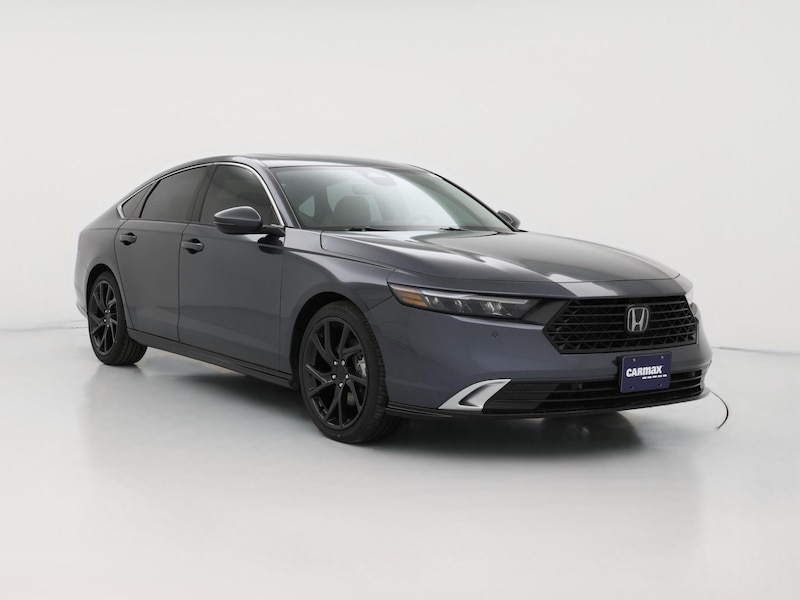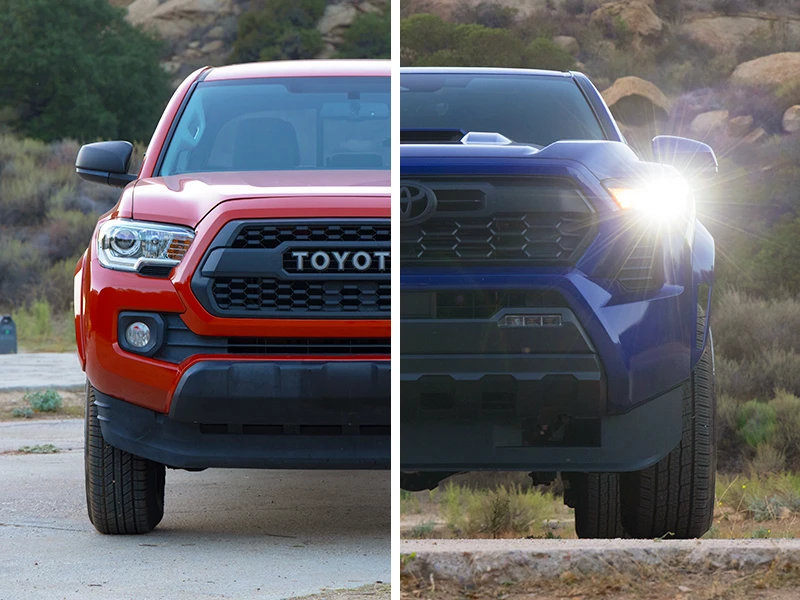Comfortable and stylish midsize sedans.
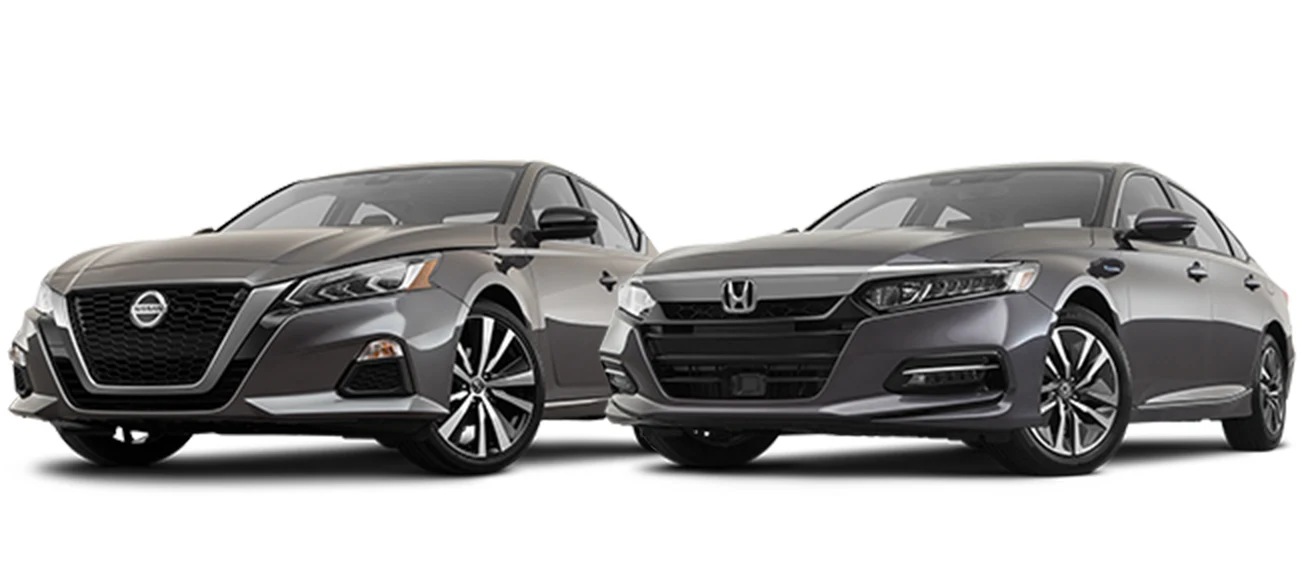
When it comes to everyday practicality, midsize sedans have easy on-road manners, fuel-sipping performance, and confidence-inspiring technologies. Two popular options in this class are the Nissan Altima and Honda Accord. Both vehicles offer everything you're looking for in a midsize sedan, including comfortable cabins, and room for passengers and cargo. If you're considering one of these popular models, you've come to the right place. Read on to compare the Nissan Altima versus the Honda Accord.
This article is part of our Midsize Sedan Comparison Series. Check out these articles to learn more about other midsize sedans:
Ask the Expert: Should You Buy A Honda Accord or Toyota Camry?
Ask the Expert: Should You Buy A Honda Accord or Hyundai Sonata?
Side-by-Side Comparison

2019 Nissan Altima | 2019 Honda Accord | |
|---|---|---|
Average Price | Less than $18,000 | Less than $24,000 |
Performance | ||
Base Engine | 2.5L four-cylinder | Turbo 1.5L four-cylinder |
Horsepower | 188 | 192 |
MPG | 32 mpg combined | 33 mpg combined |
Interior | ||
Seating | 5 | 4 |
Cargo Space | 15.4 cu-ft | 16.7 cu-ft |
Front-seat Legroom | 43.8 inches | 42.3 inches |
Rear-seat Legroom | 35.2 inches | 40.4 inches |
Overall Interior Space | 100 cu-ft | 105.6 cu-ft |
Ratings | ||
Tailpipe Emissions | 278 g/mile | 266 g/mile |
NHTSA Safety Rating | 5/5 | 5/5 |
Certain vehicles may have unrepaired safety recalls. Click here to look up a specific vehicle.
Features and Trim Options
While the Nissan Altima and Honda Accord bring different attributes to the table, they each offer a range of trims and features to satisfy your must-have list.
Nissan Altima

If you're looking for a midsize sedan with comfortable front seats for commuting, sixth-generation Altimas (2019–present) feature Nissan's Zero Gravity bucket seats, which use NASA-derived technologies to reduce fatigue when sitting for extended periods. Standard driver aids, including a driver alertness system and forward collision warning (2019–2020 models), also provide extra peace of mind on longer trips. All 2019–2020 Altima S trims come equipped with:

16-inch steel wheels
Cloth upholstery
Eight-way power-adjustable driver seat
60/40-split fold-down rear seatbacks
Eight-inch touchscreen display
Honda Accord

Offering 40.4 inches of rear-seat legroom in tenth-generation Honda Accords (2018–2020 models), this midsize sedan has a spacious cabin that's great for carpooling or outings with friends. The trunk is equally generous with 16.7 cu-ft of cargo volume to carry luggage and belongings (2018–2020 models). Boasting an upscale cabin, all 2018–2020 Accord LX models include these standard features:

17-inch alloy wheels
Cloth upholstery
Driver seat with manual height adjustments
Four-speaker audio system
Seven-inch display
Engine Options
The Nissan Altima and Honda Accord are both available with two gasoline engine choices, including optional turbocharged 2.0L four-cylinders on higher trims. You can also choose the Accord with a hybrid powertrain to get more from each tank of fuel.
2019–2020 Nissan Altima
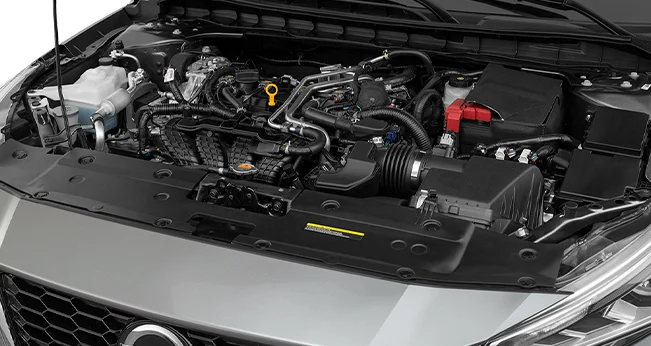
Standard 2.5L four-cylinder paired to a continuously variable transmission with 188 hp and 180 lb-ft of torque.
Optional turbocharged 2.0L four-cylinder paired to a continuously variable transmission with 248 hp and 280 lb-ft of torque (SR and Platinum trims only).
2018–2020 Honda Accord

Standard turbocharged 1.5L four-cylinder paired to a continuously variable transmission with 192 hp and 192 lb-ft of torque.
Optional turbocharged 2.0L four-cylinder paired to a 10-speed automatic transmission with 252 hp and 273 lb-ft of torque (Sport, EX-L, and Touring trims only).
Hybrid version with a 2.0L four-cylinder engine and two electric motors with 212 hp combined.
Fuel Economy
Fuel economy estimates from the EPA vary depending on the powertrain and drivetrain you choose, but the Nissan Altima and Honda Accord base models offer comparable gas mileage. For example, 2018–2020 Accord sedans with the 1.5L four-cylinder and front-wheel drive get an EPA-estimated 33 combined, while the 2019–2020 Altima with the 2.5L four-cylinder and front-wheel drive returns an EPA-estimated 32 mpg combined.††
If you're looking for all-weather performance, the 2019–2020 Altima's 2.5L four-cylinder and all-wheel drive earns an EPA-estimated 30 mpg combined.†† Want to limit fuel stops on your commute? Consider the 2019–2020 Accord Hybrid with front-wheel drive, which gets more miles to the gallon with an EPA-estimated 48 mpg combined.††
Tech Features
Both the Nissan Altima and Honda Accord come equipped with helpful technologies, including forward-collision warning and automatic emergency braking, but the Altima gets you more standard features. 2019–2020 base Altima S models include a NissanConnect® eight-inch touchscreen display and Apple CarPlay® and Android Auto™ capabilities, but to get these features in the 2018–2020 Accord, you'll have to climb to the Sport trim.
2019–2020 Nissan Altima
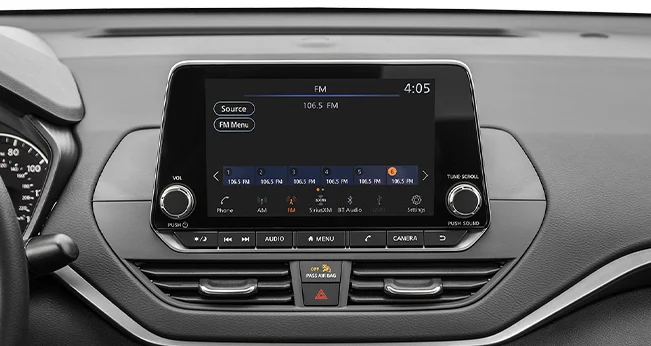
Bluetooth® phone and streaming audio capabilities
Two USB ports and two USB-C ports
Rearview monitor
Six-speaker audio system
Driver alertness system
2018–2020 Honda Accord

Bluetooth phone and streaming audio capabilities
Seven-inch display
Rearview monitor
Four-speaker audio system
Lane departure warning
Cargo Space
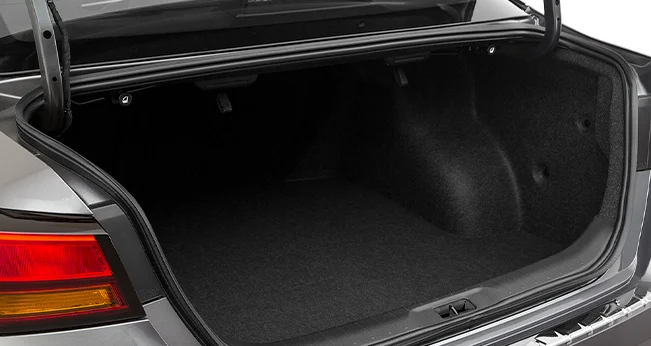
When it comes to cargo capacity, sixth-generation Nissan Altimas (2019–present) and tenth-generation Honda Accords (2018–present) are neck-and-neck. The 2019–2020 Altima has 15.4 cu-ft of trunk volume to hold groceries and shopping bags, while the 2018–2020 Accord has slightly more with 16.7 cu-ft of volume (including hybrid models). Both sedans also come standard with 60/40-split fold-down rear seatbacks to accommodate large items, except LX models of the 2018–2020 Accord.

Pricing
Side-by-side, 2017–2020 Nissan Altima and 2017–2020 Honda Accord models offer a range of prices.
See below for average CarMax prices for model years of the Nissan Altima:
2017—Average prices less than $15,500†
2018—Average prices less than $16,500†
2019—Average prices less than $18,000†
2020—Average prices less than $19,500†
See below for average CarMax prices for model years of the Honda Accord:
2017—Average prices less than $19,000†
2018—Average prices less than $23,000†
2019—Average prices less than $24,000†
2020—Average prices less than $26,500†
Safety Ratings
The 2019 Nissan Altima and the 2019 Honda Accord both achieved an overall five-star safety rating by the National Highway Traffic Safety Administration (NHTSA). Certain vehicles may have unrepaired safety recalls. Click here to look up a specific vehicle.
2019 Nissan Altima
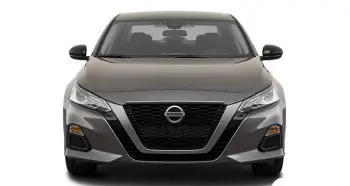
Frontal Barrier Crash Rating Test: A head-on collision between two similar vehicles traveling at 35 mph.
Overall: 4/5
Side Barrier Crash Rating Test: A vehicle standing in an intersection sustains driver-side impact from a vehicle moving at 38.5 mph.
Overall: 5/5
Side Pole Crash Rating Test: A vehicle slides sideways at 20 mph and impacts a tree or telephone pole.
Overall: 5/5
2019 Honda Accord

Frontal Barrier Crash Rating Test: A head-on collision between two similar vehicles traveling at 35 mph.
Overall: 5/5
Side Barrier Crash Rating Test: A vehicle standing in an intersection sustains driver-side impact from a vehicle moving at 38.5 mph.
Overall: 5/5
Side Pole Crash Rating Test: A vehicle slides sideways at 20 mph and impacts a tree or telephone pole.
Overall: 5/5
Reliability
The Honda Accord has slightly higher reliability ratings than the Nissan Altima. Here's how each model rates:
Nissan Altima
RepairPal gave the Nissan Altima an overall reliability rating of 4 out of 5 stars, which RepairPal describes as above average.
Cost: RepairPal reports that the average total annual cost for repairs and maintenance on a Nissan Altima is $483, compared to an average of $526 for midsize cars and $652 for all the vehicles RepairPal considered in its dataset.
Frequency: According to RepairPal, Nissan Altima owners bring their vehicles into a repair shop for unscheduled repairs an average of 0.3 times per year, compared to an average of 0.3 times for midsize cars and 0.4 times for all the vehicle models RepairPal considered in its dataset.
Severity: RepairPal reported that the probability of a repair being a severe or major issue is 12% for the Nissan Altima, compared to an average of 12% for midsize cars and 12% for all the vehicles RepairPal considered in its dataset.
Honda Accord
RepairPal gave the Honda Accord an overall reliability rating of 4.5 out of 5 stars, which RepairPal describes as above average.
Cost: RepairPal reports that the average total annual cost for repairs and maintenance on a Honda Accord is $400, compared to an average of $526 for midsize cars and $652 for all the vehicles RepairPal considered in its dataset.
Frequency: According to RepairPal, Honda Accord owners bring their vehicles into a repair shop for unscheduled repairs an average of 0.3 times per year, compared to an average of 0.3 times for midsize cars and 0.4 times for all the vehicle models RepairPal considered in its dataset.
Severity: RepairPal reported that the probability of a repair being a severe or major issue is 9% for the Honda Accord, compared to an average of 12% for midsize cars and 12% for all the vehicles RepairPal considered in its dataset.
RepairPal Reliability Ratings are based on the actual cost, frequency, and severity of unscheduled repairs and maintenance on make/model data for select 2010–2019 vehicles. The reliability of a specific vehicle may vary depending on its maintenance and driving history, model year, trim, and features.
*RepairPal Reliability Ratings are provided by RepairPal and CarMax is not responsible for their accuracy. These ratings are based on RepairPal Reliability data as of 12/31/2018. Learn more.
Performance
Available with optional all-wheel drive, the Nissan Altima is a midsize sedan with all-weather capabilities. When equipped with the base 2.5L four-cylinder engine and AWD system, 2019–2020 models can cover zero to 60 mph in eight seconds (according to the manufacturer, when new) and earn an EPA-estimated 30 mpg combined.††
While it may not win awards for speed, the Altima delivers comfortable on-road manners and stable handling.
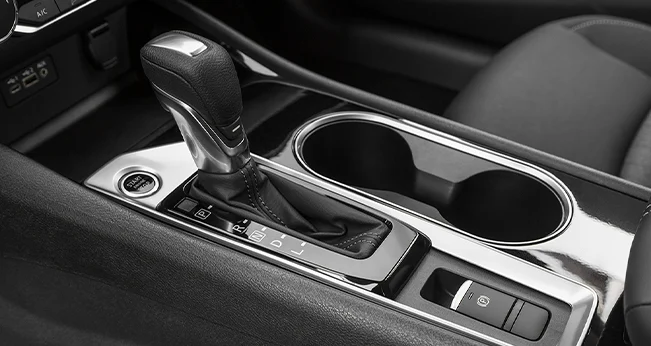
Rushing from zero to 60 mph in just 7.2 seconds, the 2018–2020 Honda Accord delivers swift performance from its base turbocharged 1.5L four-cylinder with 192 hp and 192 lb-ft of torque (according to the manufacturer, when new). This same powertrain returns an EPA-estimated 33 combined with front-wheel drive, but if you prioritize fuel economy, the 2018–2020 Accord Hybrid gets more miles to the gallon with an EPA-estimated 48 mpg combined.††

Emissions
EPA estimates for greenhouse gas emissions vary depending on which model year of the Nissan Altima or Honda Accord you choose. If you want the lowest grams per mile, look to the Accord Hybrid. These estimates are based on brand-new models. Visit fueleconomy.gov for more details.
Nissan Altima
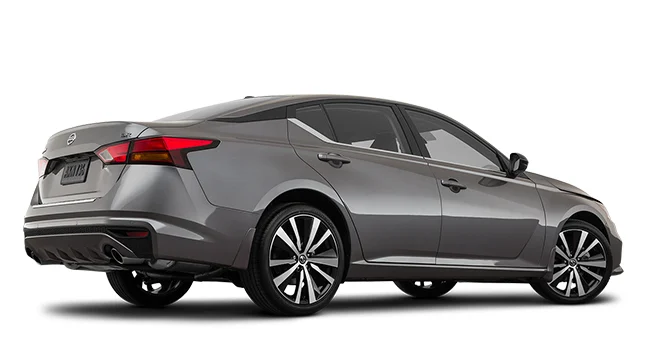
According to EPA estimates, the FWD 2019–2020 Nissan Altima with the 2.5L engine has tailpipe greenhouse gas emissions that are 278 grams per mile.
According to EPA estimates, the AWD 2019–2020 Nissan Altima with the 2.5L engine has tailpipe greenhouse gas emissions that are 300 grams per mile.
According to EPA estimates, the FWD 2019–2020 Nissan Altima with the 2.0L engine has tailpipe greenhouse gas emissions that are 311 grams per mile.
Honda Accord

According to EPA estimates, the FWD 2018–2020 Honda Accord with the 1.5L engine has tailpipe greenhouse gas emissions that are 266 grams per mile.
According to EPA estimates, the FWD 2018–2020 Honda Accord with the 2.0L engine has tailpipe greenhouse gas emissions that are 330 grams per mile.
According to EPA estimates, the FWD 2018 Honda Accord Hybrid's tailpipe greenhouse gas emissions are 187 grams per mile.
According to EPA estimates, the FWD 2019 Honda Accord Hybrid's tailpipe greenhouse gas emissions are 184 grams per mile.
According to EPA estimates, the FWD 2020 Honda Accord Hybrid's tailpipe greenhouse gas emissions are 185 grams per mile.
The Bottom Line
When shopping for the practicality and comfort of a midsize sedan, the Nissan Altima and Honda Accord are great choices. Both models offer comparable interior space, fuel economy, and ratings that make them suitable for commuting or special trips. With an available hybrid powertrain, the Accord also caters to those looking to minimize stops, while the Altima impresses with its standard tech features and optional all-wheel drive.
Looking to learn more? Check out these related articles:

